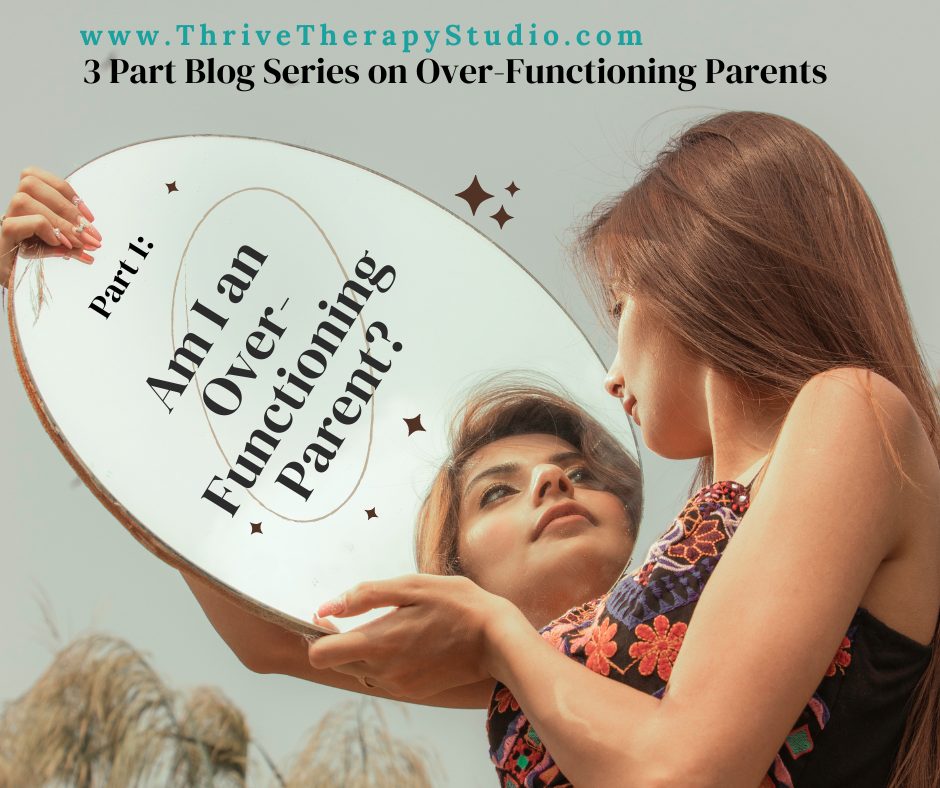I’ve been thinking about the idea of “over-functioning” often recently as it is a huge topic in my office and many of the therapist and mom podcasts I listen to. I have been mulling over the dynamic of over-functioning and how this impacts children, particularly when a parent is an over-functioner.
First, what is an over-functioner? Someone who falls into this pattern will likely feel that they need to do everything all the time for everyone around. This feeling usually results from how they have learned to cope with anxiety and naturally deal with anxiety, stress, or overwhelming situation by taking action rather than falling apart. Similar to perfectionism or being a high performer, which has traits often associated with over-functioners, this is not all negative by any means. There are significant strengths to over-functioning, perfectionism, and high performance. There are also significant challenges and a huge cost to the person living at an unsustainable pace all the time, which is often burnout.
People who are over-functioning often take on more than they should of the responsibilities around them, at work and home. This can lead others to feel less capable in comparison. They might think, “Since I can’t even do half as much as they can, I must not be as good or capable as they are.” Unfortunately, the conclusion is often that they will never be able to do things as well as the other person and stop trying.
This conclusion is clearly frustrating for the person who has more things on their plate, but they have a role to play here too. Often, if the other person tries to help with something but does not do it as well or the same as the person who is in the role of over-functioning, someone may criticize. This assumption becomes a negative feedback loop for the other person and for the over-functioner, where both people end up feeling that one of them is more capable than the other. Just imagine the impact on a work team or in a marriage.
Unfortunately, this pattern has a similar impact on children. If a parent is always stepping in for a child and doing things for them, even if they can do it themselves, it will give that child the message that they are less capable. Sometimes, it leads to a feeling that they are less competent and incapable, especially for kids who are aware of their parent’s efforts and how much they do for them.
In my office, this has sounded like the following:
- I can’t possibly be an adult.
- I’m scared of growing up.
- I don’t want to have kids – just look at everything my mom has to do, and I can’t even do my homework right.
- How will I manage without my parents around me all the time?
- Why can’t my parents just leave me alone? I can handle things, but they do them before I even have a chance to try. And then they tell me that I can’t do things on my own!
- My parents always tell me I am not going to be okay without them and that “I can’t make it on my own.”
If some of these phrases resonate with you, you might have taken on an over-functioning role in your family. Since we all want to raise children who are capable and independent, that might be hard to recognize as, unfortunately, your best intentions are getting in the way of your child’s development.
The good news is that you can work through all of this! I won’t even begin to say that this will be easy because these dynamics are often rooted in deep feelings about a parents’ role, fears about a child’s ability to “make it,” and confusion related to what parents are responsible for. While it is not easy, it is well worth trying to shift this dynamic to help your child.
Read on next week to learn more about how to adjust this dynamic in your family!
Reach out to start
your healing journey


